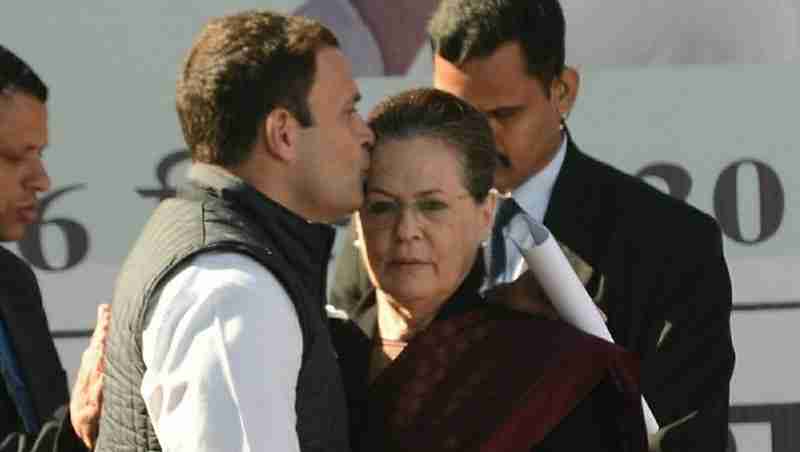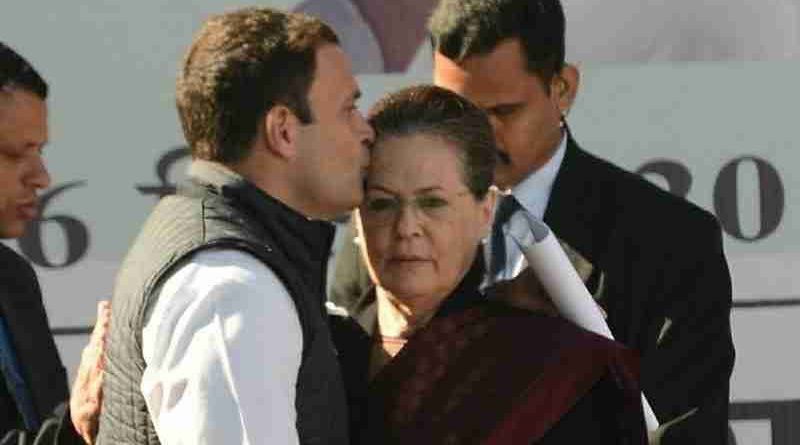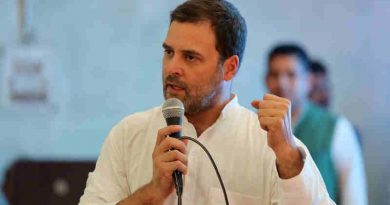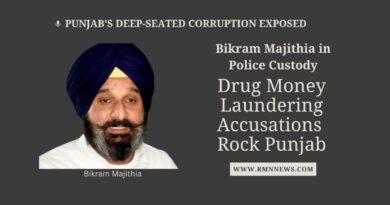Delhi Court Issues Notice to Sonia, Rahul Gandhi in National Herald Case

Delhi Court Issues Notice to Sonia, Rahul Gandhi in National Herald Case
Sonia and Rahul Gandhi, named as accused number one and two respectively in the chargesheet, had previously unsuccessfully attempted to have the ED’s proceedings quashed by the courts and are currently out on bail.
By RMN News Service
New Delhi: A Delhi court has issued formal notices to Congress leaders Sonia Gandhi and Rahul Gandhi in connection with the National Herald money laundering case. This follows a probe by the Enforcement Directorate (ED). Special Judge Vishal Gogne noted the importance of allowing the accused the right to be heard. The court has scheduled the next hearing for May 8.
The Enforcement Directorate (ED) has filed a chargesheet (prosecution complaint) against Sonia Gandhi, Rahul Gandhi, and others in the case. The prosecution complaint was filed on April 9. This filing potentially paves the way for criminal charges and a trial against Sonia Gandhi, the former Congress president, and Rahul Gandhi, the leader of the opposition in Lok Sabha, along with their associates.
The ED’s investigation formally began in 2021 after a magistrate court took up a private criminal complaint filed in June 2014 by BJP leader Subramanian Swamy. Swamy’s complaint alleged criminal conspiracy and financial misconduct involving top Congress leadership concerning the now-defunct National Herald newspaper.
According to ED sources, the chargesheet names five individuals and two companies as accused, including Young Indian, a firm in which the Gandhis hold a controlling stake. Other individuals named reportedly include Sam Pitroda and Suman Dubey.
The core of the case revolves around allegations that Sonia Gandhi and Rahul Gandhi orchestrated a “criminal conspiracy” to “usurp” properties belonging to Associated Journals Ltd (AJL), the publisher of the National Herald newspaper. AJL was a public company. The ED alleges that this was achieved by transferring 99% of AJL’s shares to Young Indian, a private company controlled by the Gandhis, for a mere ₹50 lakh. This transfer allegedly allowed Young Indian to gain control of AJL and its properties.
The ED claims that Congress had extended an unsecured loan of around ₹90 crore to AJL, which was later assigned to Young Indian for a nominal ₹50 lakh. The agency claims this arrangement allowed Young Indian to gain control of AJL and its properties. The ED alleges proceeds of crime worth ₹5,000 crore and estimates the current market value of the assets at ₹5,000 crore.
[ National Herald Money Laundering Case: A Study Guide ]
Through the transfer, Sonia and Rahul Gandhi allegedly became the “beneficial” owners of AJL’s properties worth thousands of crores. The agency claims the alleged “criminal conspiracy” involved acquiring AJL’s assets by converting an outstanding loan of ₹90.21 crore given by the Congress party to AJL into ₹9.02 crore equity shares, which were then transferred to Young Indian for ₹50 lakh. The ED has accused the Gandhis and other Congress figures of laundering approximately ₹988 crore through this arrangement.
The ED reportedly found that while Young Indian was listed as a “not-for-profit” company, there was “no such charitable activity” within the company.
The ED has reportedly produced documentary evidence related to the money trail and other transactions to support its claims. The agency has already questioned Sonia and Rahul Gandhi, along with former Congress treasurers Motilal Vora and Oscar Fernandes, multiple times, and their statements are believed to be part of the prosecution complaint. The ED recently announced it had initiated proceedings to take possession of attached ₹750 crore properties of AJL, including land and buildings located in Mumbai, Delhi, and Lucknow.
Sonia and Rahul Gandhi, named as accused number one and two respectively in the chargesheet, had previously unsuccessfully attempted to have the ED’s proceedings quashed by the courts and are currently out on bail. The ED has sought punishment for Sonia Gandhi, Rahul Gandhi, and other accused under Section 4 of the Prevention of Money Laundering Act (PMLA), where a jail term can extend up to seven years.
The Congress party has accused the ED and the Centre of using investigative agencies as tools of political vengeance. Congress president Mallikarjun Kharge stated that the party would not be cowed by what he described as “a spirit of vendetta”. The Congress has long maintained that Young Indian is a not-for-profit company.
💛 Support Independent Journalism
If you find RMN News useful, please consider supporting us.




